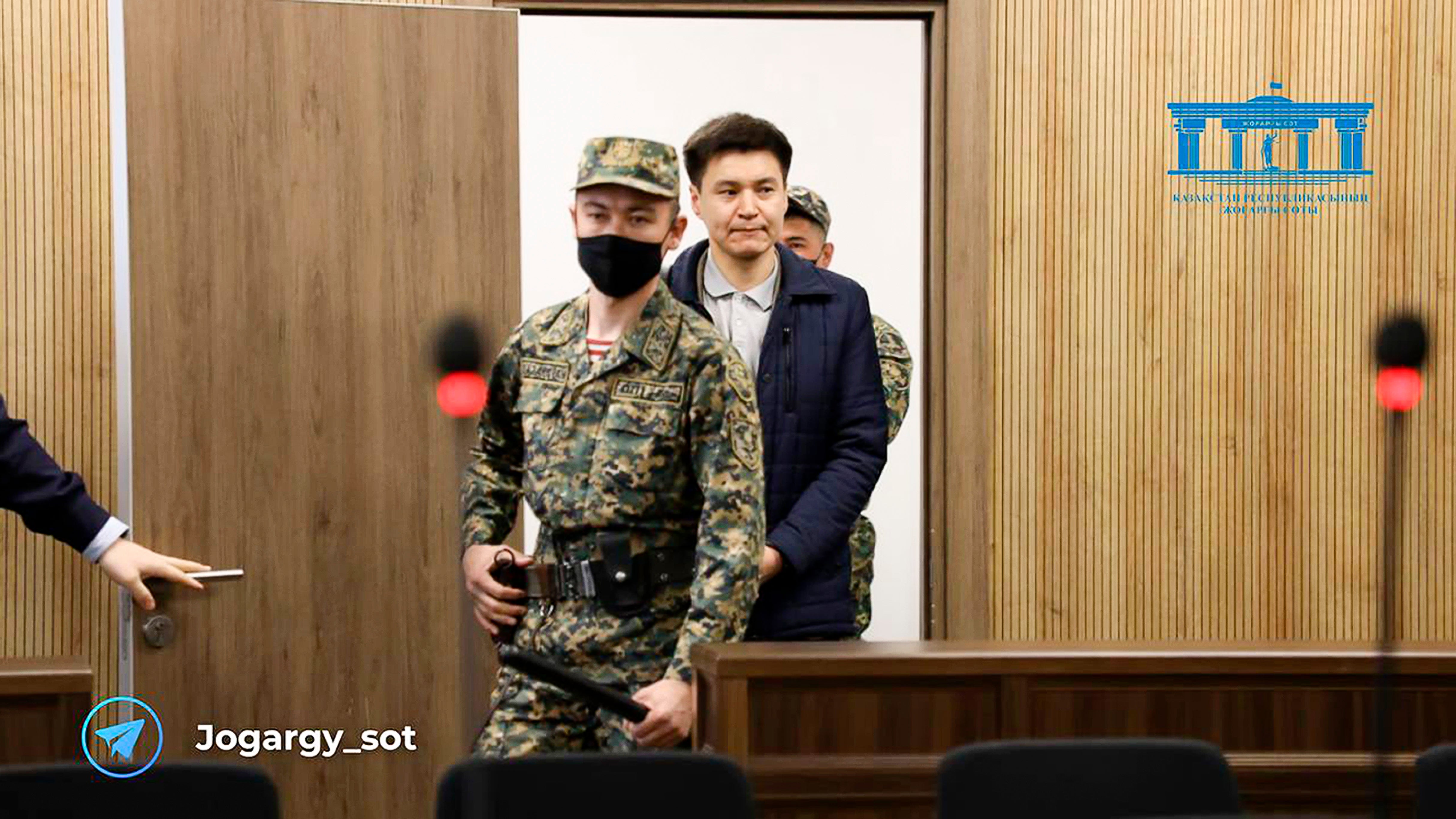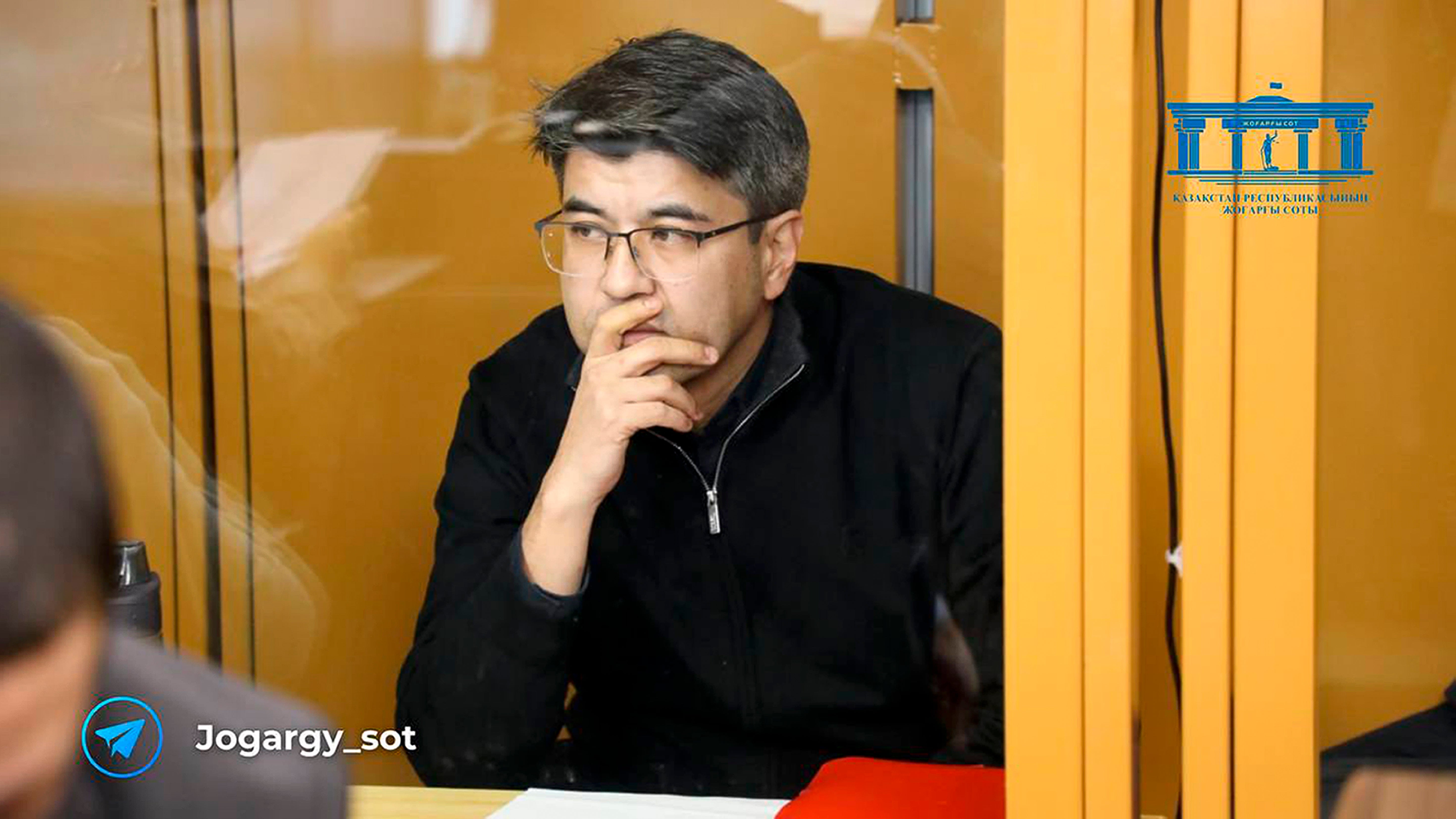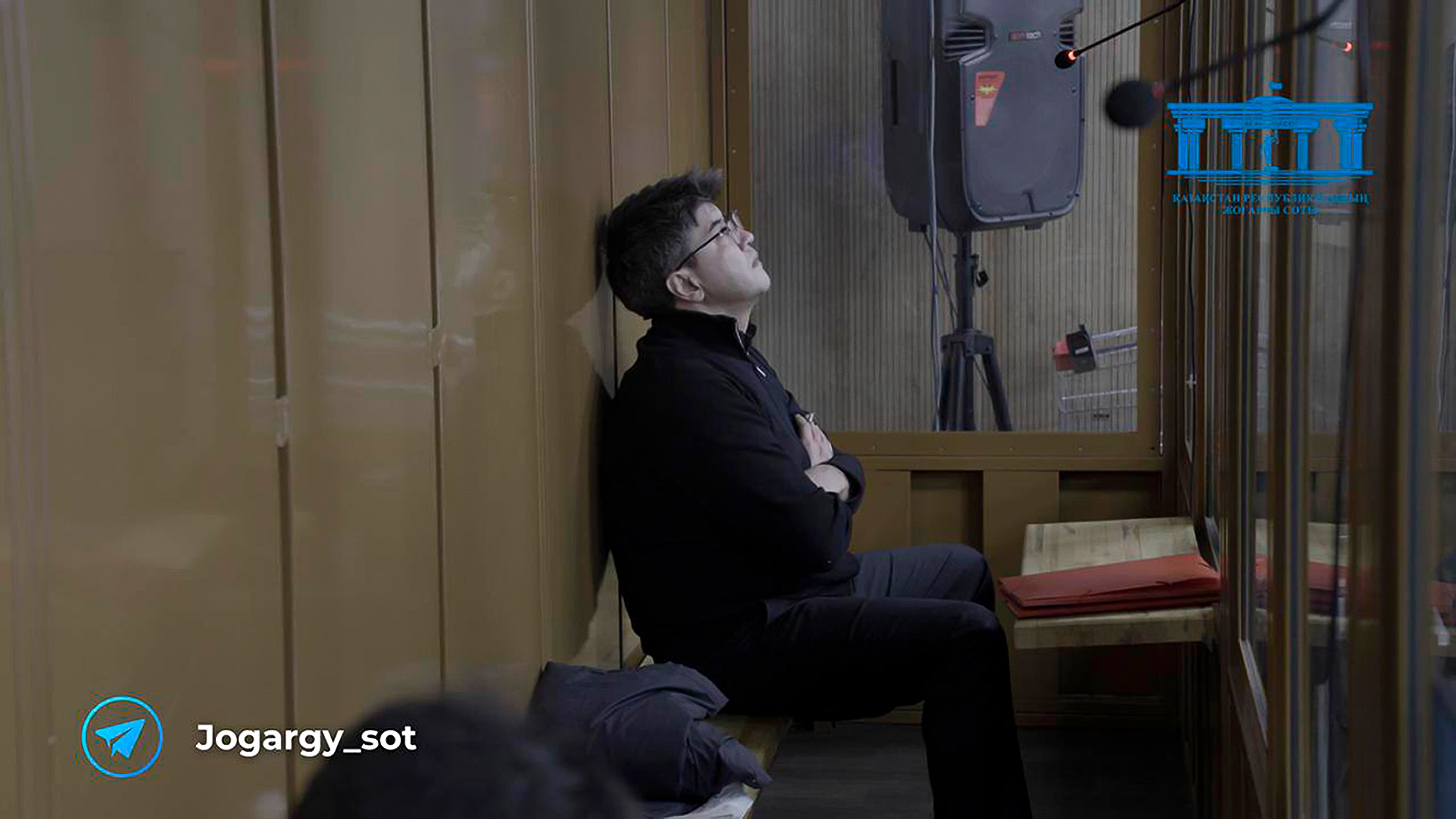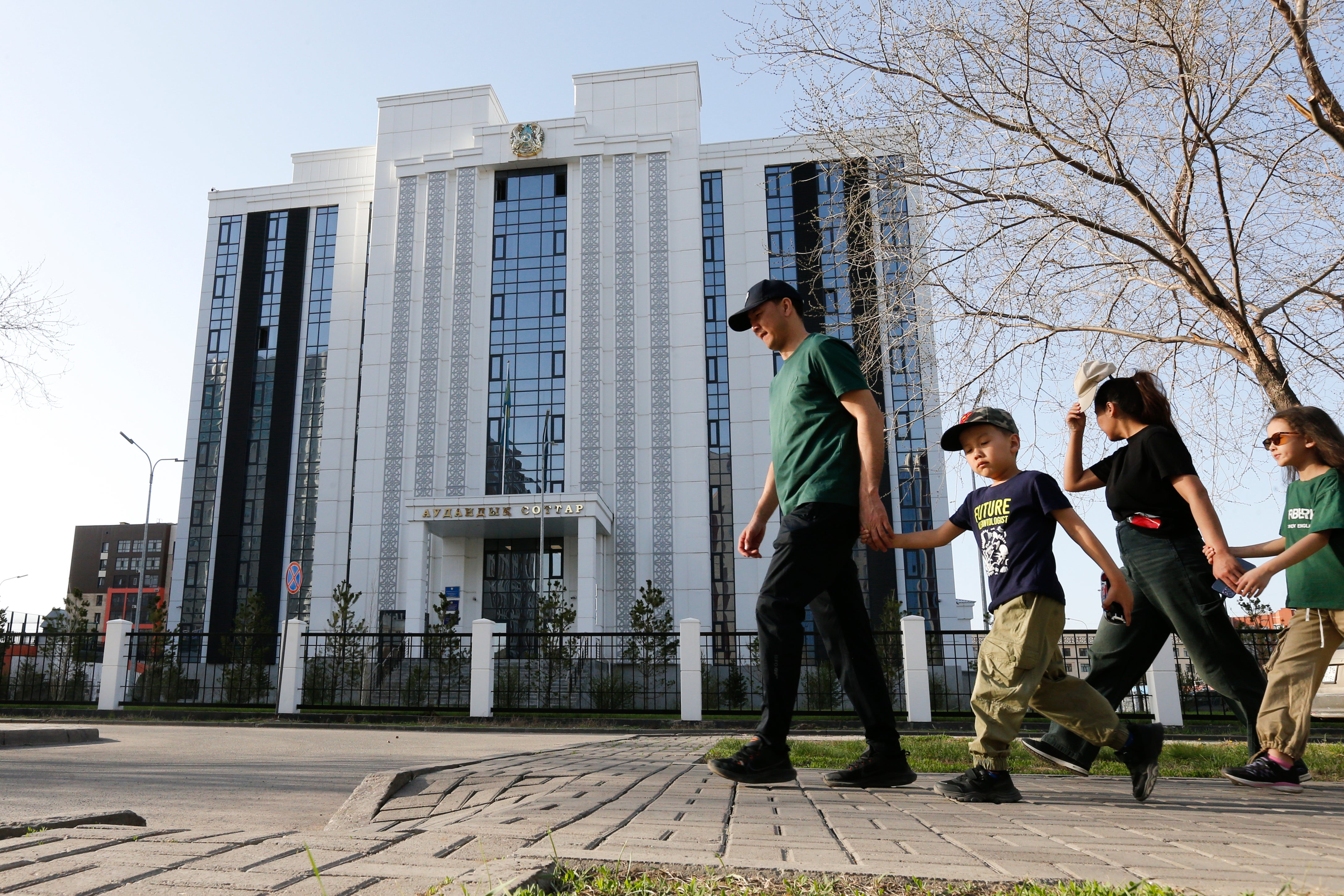The online murder trial of a politician accused of killing his wife that could change a country forever
The notion of domestic violence is currently absent from Kazakhstan’s criminal code

The CCTV footage shown at the domestic abuse trial was disturbing: The defendant is seen dragging his wife by her hair, and then punching and kicking her. Hours after it was recorded, she died of brain trauma.
The trial of businessman Kuandyk Bishimbayev, Kazakhstan's former economy minister, in the death of his wife, Saltanat Nukenova, has touched a nerve in the Central Asian country. Tens of thousands of people have signed petitions calling for harsher penalties for domestic violence.
The notion of “domestic violence” is currently absent from the country’s criminal code.
On April 11, senators approved a bill toughening spousal abuse laws, and President Kassym-Jomart Tokayev signed it four days later. It's been dubbed “Saltanat's Law” in her honor.
Kazakhs are riveted by Bishimbayev’s trial, the first in the country of over 19 million people to be streamed online, and debates about it are dominating social media. Many see it as a moment of truth for Tokayev's promises of reforms and making officials accountable.
The 44-year-old Bishimbayev, once seen as a fresh, Western-educated face of Kazakhstan’s government under former leader Nursultan Nazarbayev, was jailed for bribery in 2018 before being pardoned less than two years into his 10-year sentence.
Nukenova, 31, was found dead in November in a restaurant owned by one of her husband's relatives. Bishimbayev, who was charged with torturing and killing her, for weeks maintained his innocence but admitted Wednesday in court that he had beaten her and “unintentionally” caused her death.
His lawyers initially disputed medical evidence indicating Nukenova died from repeated blows to the head. They also portrayed her as prone to jealousy and violence, although no video from the restaurant's security cameras that was played in court has shown her attacking Bishimbayev.

Aitbek Amangeldy, Nukenova’s elder brother and a key prosecution witness, told The Associated Press that he had no doubt his sister’s tragic fate has shifted attitudes about domestic violence.
“It changes people’s minds when they see directly what it looks like when a person is tortured,” Amangeldy said in a video interview, citing the harrowing video played in court.
“Of course, it’s difficult for me to be in court, to listen to various things that the defendant’s side has been saying," he said. "It’s even more painful to know that (their) words are being broadcast across the country. But I understand that these broadcasts are also educational material, including for lawyers and human rights defenders.”
Like neighboring Russia, Kazakhstan largely remains a patriarchal society, and progress has been slow on issues such as domestic violence, sexual harassment, and disparities in employment.
According to a 2018 study backed by UN Women, the United Nations’ gender equality agency, about 400 women die from domestic violence each year in Kazakhstan, although many abuse cases go unreported.
In 2017, Kazakhstan decriminalized beatings and other acts causing “minor” physical damage, making them punishable only by fines or short jail terms. Russia enacted a similar law that year, outraging women’s rights advocates. Kazakhstan's new law reverses this, increasing penalties for assailants and introducing new criminal offenses, including harassment of minors.
Days after Nukenova's death, her relatives launched an online petition urging authorities to pass “Saltanat's Law” to bolster protection for those at risk of domestic violence. It quickly got over 150,000 signatures.
As Bishimbayev’s trial began, more than 5,000 Kazakhs wrote senators urging tougher laws on abuse, Kazakh media said.
Still, Amangeldy said the law's final version failed to include all the provisions his family and allies had wanted, noting that “we still have no legal norms around stalking and harassment" of adults.
Viktoriya Kim, a Kazakhstan-based researcher at Human Rights Watch, said the very notion of "domestic violence” is absent from the country's criminal code. Including it, she said, would send “a clearer signal.”
But Amangeldy argues that Kazakh society has clearly “passed a point of no return.”
“For years, across Kazakhstan and the whole region, the issue (of domestic violence) was shrouded in silence. Raising the issue is already half the solution,” he said.

Women's rights advocate Aigerim Kussainkyzy said Bishimbayev’s trial has led to “a collective awakening” among politicians and ordinary citizens.
“Some may even label it the trial of the century. ... Male politicians, in particular, have started to consider the implications of domestic violence for their own daughters,” said Kussainkyzy, who was among civil society representatives that lawmakers consulted before passing the bill.
The proposals encountered fierce pushback from the Kazakh Union of Parents — an influential association that echoes Russia’s opposition to feminist initiatives and LGBTQ+ rights. On the day Tokayev signed the domestic violence law, the organization gave its “Mother of the Year” award to Bishimbayev’s mother, Almira Nurlybekova, in recognition of her "courage ... supporting her son through court proceedings and fighting for his rights.”
Tokayev has talked repeatedly about strengthening protections for women. In January, he intervened after the Justice Ministry refused to consider the petition by Nukenova’s family.
Despite the inclusion of activists in the legislative process, some Kazakh rights defenders argue the law's passage has been accompanied by continuing pressure on those advocates, independent of the government.
Last month, authorities in Almaty — Kazakhstan's largest city and business hub — blocked a rally for International Women's Day to show solidarity with victims of domestic abuse. Feminita, the feminist and LGBTQ+ rights group that tried to organize it, has struggled for years for official registration.
In December, Kazakhstan put women’s rights activist Dina Smailova on its wanted list after authorities launched a criminal fraud investigation that she described as likely retribution for her work.
Smailova, head of the NeMolchi.KZ foundation, which means “Don't Be Silent” and advocates for abuse survivors, told AP that she and her organization were unable to join discussions on the new law.
“I’ve lost faith in the authorities, because even as they pass a law protecting women and children from violence, they pass harsher laws against independent journalists and bloggers,” Smailova said in an interview from Montenegro, where she lives.
She welcomed the bill “as a first step,” but said it can only be adequately implemented after tackling “corruption and nepotism” within law enforcement and the courts, citing the fraud case against her.
“Kazakhstan is a country where everyone has a lot of relatives … and if there’s a case concerning a relative of someone in law enforcement, then that person will certainly evade responsibility,” she said, adding that education and media campaigns are needed to change attitudes.

Senate Speaker Maulen Ashimbayev said that properly implementing the law will require “a great deal of work,” including educational campaigns in schools and the media, as well as vigilance from civil society groups.
HRW's Kim told AP the investigation of Smailova, who has repeatedly criticized officials’ failure to protect abused women and children, was marred by “numerous procedural infractions,” raising “serious concerns that she is being persecuted.”
“I would like to see more willingness from authorities to help and support those who fight for and promote women’s rights,” the researcher said, noting concerns about Kazakhstan's global reputation played a role in its willingness to act on domestic violence.
“International organizations have called for this particular step for years. That’s something the authorities were ready to do to meet rights defenders halfway,” she said.
Meanwhile, Bishimbayev’s trial continues to spark controversy. Police are investigating telephone threats reported by Judge Ayzhan Kulbayeva after she disallowed forensic evidence from defense lawyers alleging Nukenova’s death could have been caused by a preexisting condition.
As closing arguments approach, debate rages in Kazakhstan over its justice system and women's rights, with many believing the trial already has changed the country forever.
Bookmark popover
Removed from bookmarks